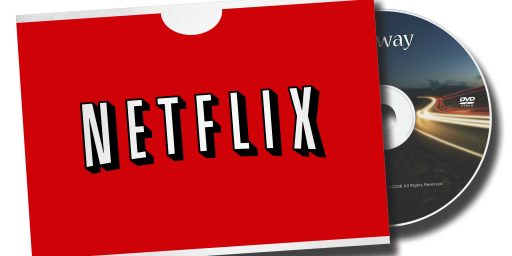Netflix and TiVo to Develop Internet Movie Product
Netflix, TiVo to Develop Internet Movie Product (Reuters)
Online DVD rental service Netflix Inc. and digital video recorder maker TiVo Inc. on Thursday said they would jointly develop a product to download movies over the Internet, a deal uniting two of the fastest growing brands in home entertainment. Shares of TiVo jumped 7 percent and shares of Netflix rose 5 percent in after-hours trade on the widely anticipated announcement for a set-top box that represents a kind of technological Holy Grail for the entertainment industry.
Netflix spokeswoman Shernaz Daver said they targeted a 2005 debut for a product that would let consumers download movies onto their TiVos through high-speed Web connections and watch films at their leisure. But the plan faces the daunting challenges of winning cooperation from Hollywood, which has hesitated to release its movies on the Web without rock-solid security, fearing it could lose control of its products like music industry labels did.
Bigger competitors are also already trying to take business from the two young technology firms, which have about 2 million subscribers each. TiVo and Netflix, both of which had been Wall Street high-flyers because of their cutting edge technology for home movie and television viewing, have seen their shares fall by about half over the last year in the face of rising competition. Netflix has seen threats to its market as Wal-Mart Stores Inc. entered the DVD-by-mail business, while TiVo is under pressure from cable companies that offer personal video recorders that, like TiVo, store TV shows on a computer hard drive. Cable companies also offer video on demand and pay-per-view movies, products which compete with the new plan.
*** TiVo last month won U.S. regulatory approval for technology that would permit users to send copies of digital broadcast shows over the Internet to a limited number of friends, despite concerns by the Motion Picture Association of America and the National Football League about the risks of unfettered distribution of copyrighted shows and airing regional games outside of their markets. TiVo Chief Executive Mike Ramsay, who resigned from the Netflix board, said that no merger or acquisition was in the works between the two companies. “We have an interest in tapping into broadband as a distribution mechanism for content. Its a natural for us because we have all these units out there, and we think its a natural for the consumer because this content can be made available in a form that probably won’t find its way to broadcast,” he told Reuters.
I’m a huge TiVo fan and have heard good things about NetFlix. (I used the latter when it first came out and was unimpressed with the turnover time; that’s apparently been fixed by the proliferation of regional distribution centers.) Computer storage space has become incredibly inexpensive and broadband Internet more ubiquitous, although I would think both need to improve considerably for this project to be truly viable. TiVo has been an excellent step in the direction of putting consumers in charge of their viewing time. We shouldn’t be too far from the day where TiVo and the Internet converge, letting people watch any program ever offered at any time.





I’m assuming that they are not going to send the actual DVD MPEG2 content to the end-user. It would be much more bandwidth friendly to use a form of MPEG4, which allows for higher compression rates, with a minimal loss in quality.
Most movies could easily fit in under 2 GB with surround sound this way, while the actual DVD might have 5-9 GB of data.
My internet connection is 3000 kilobits per second downstream. At that rate, a 2,097,152 kilobyte (2 GB) movie would download in an hour and a half.
Most movies are around 2 hours long… which means that the movie’s running time is less than the download time, which means that with some buffering, the movie could be viewed almost instantly, while the rest downloads in the background.
The future may not be that far away afterall, and I think we’re going to see ISPs offering faster speeds fairly soon. My ISP, Cox cable, is upping its basic service to 3000kbps/512kbps for basic, and 5000kbps/768kbps for the higher tier.